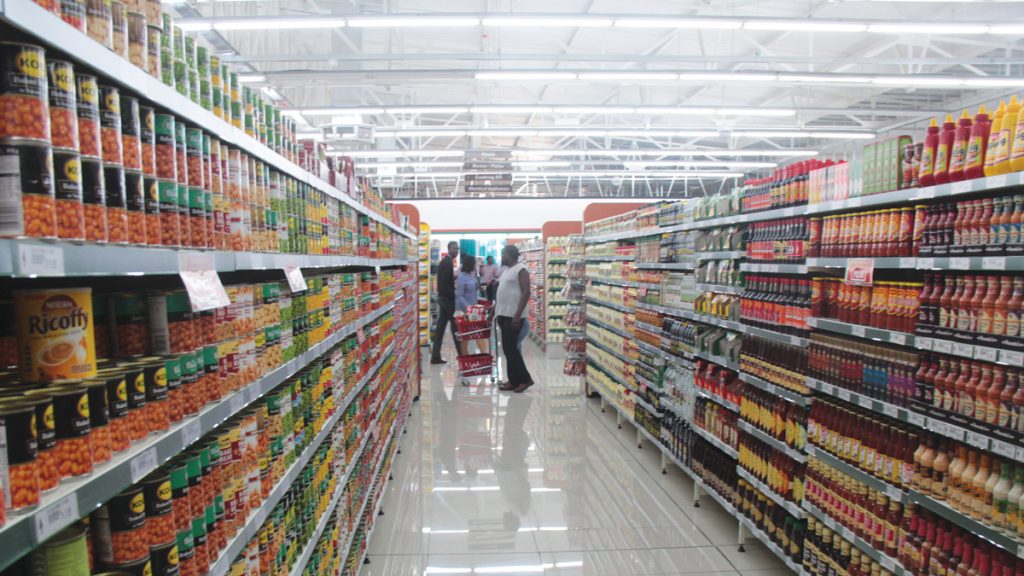Food worth P995m imported in October 2021
Total imports value is P8 billion
Botswana’s food production value chain weak
BAKANG TIRO
editors@thepatriot.co.bw
Figures from the government information collecting agency, Statistics Botswana (SB), reveal that the food import bill for the month of October 2021 is almost P1 billion; standing at P995 716 216.4.
The imported food amount alone has translated to 11.3 percent of Botswana’s total imports, which were valued at P8 801 409.755.6.
Statistics Botswana said Beverages, Spirits and Vinegar accounted for 21.4 percent of food imports, followed by Cereals and Miscellaneous edible preparations with 15.4 percent and 9.1 percent respectively.
“The most imported types of the Beverages, Spirits & Vinegar during this period were “Waters, including the mineral waters and aerated waters containing an added sugar or other sweetening matter”, which contributed 21.5 percent.
Non-alcoholic beverages and Beer made from malt, followed at 19.2 percent each. “Maize (Corn) other than seed” contributed 35.3 percent to Cereals. “Rice; Semi-milled or wholly milled, whether or not polished or glazed” accounted for 28.3 percent to the cereal chapter,” said Statistics Botswana on the latest food import bill report.
Economist Dr Mosimane Rammika has said the continuous growth of the food import bill clearly demonstrates the importance of self-sufficiency in food to reduce imports as it is a burden to the economy.
He said it was positive that in his 2021 State of Nation Address (SONA) President Mokgweetsi Masisi acknowledged that a deficit of over 60 percent in grain production locally which meant that they will focus on reversing the development. Other sectors in deficit include fuel energy, milk and leather production.
“Waters; including mineral and aerated, containing added sugar or other sweeting matter or flavoured contributed 21.5 percent in the import bill. These are one of the areas Botswana can develop to become self-sufficient. All forms of cereals need to be looked at as it contributes a lot to the import bill,” he said.
Robust diversification
Meanwhile, Botswana Federation of Public, Private and Parastatal Sector Unions (BOFEPUSU) in its workers charter said the economy should be diversified away from the minerals sector.
“Botswana’s economy remains monolithic and export-oriented with a weak industrial base. The dependence on the extraction of the primary resources such as diamonds and copper has not led to expansion in job creation while other sectors have not shown any major growth,” said BOFEPUSU.
BOFEPUSU proclaimed that sustainable and inclusive economic growth focusing on the strengthening of national development integrative processes and depending on competitive agricultural and industrial sectors directed primarily towards market need, so to limit dependency upon the external markets.
Rammika has buttressed that the only way is to address food production in the country as several statements from the president and minister of agriculture has reiterated.
“We need to speed up all our economic intervention such as SEZA, SPEDU, and ESP AND ERTP. ERTP is costing us as Batswana seven percent of the GDP and therefore we deserve to get value for our money, especially addressing the issues of financial loss during implementation, which currently sit at 37% of the money used. In the end, this costs an average person the required service and tax increment as a way of expanding of revenue streams for the budget coffers,” he highlighted.
Agriculture is one of the several sectoral priority areas identified by the P20 billion Economic Recovery and Transformation Plan (ERTP), government’s blueprint to lift the economy out of the COVID-19 and set it on a more sustainable path but experts say effective implementation is key.
The final draft of ERTP document approved by Parliament indicates that government intends to spend a whooping P1.95 billion in the next two years on different agricultural initiatives so as to boost growth. Government, as part of the ETRP, is also keen on tapping into the food processing industry as it is considered to have ample ability to diversify food production as well as reduce the import bill.
